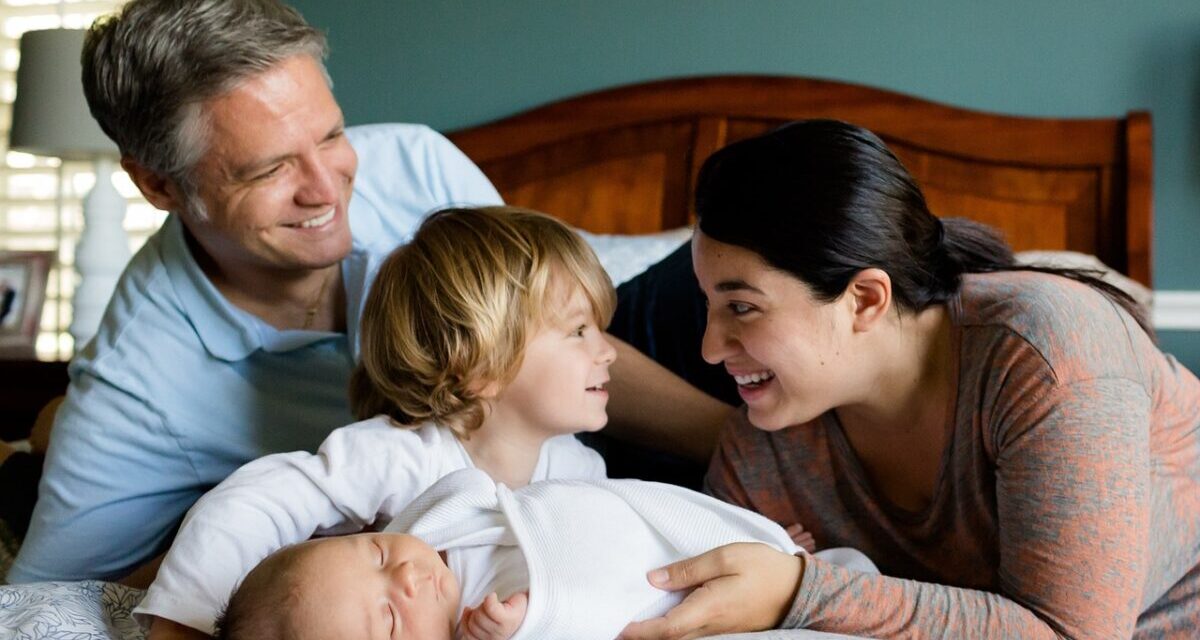The government can win the battle on several fronts if it doubles the family tax allowance in 2025. In addition, a new, multi-year wage agreement is being formed, speeding up the increase in salaries.
The government would double the amount of the family tax discount next year, Prime Minister Viktor Orbán announced in his traditional speech in Tusnádfürdő. He emphasized that Hungary must become "demographically self-sustaining" by 2035, and all means must be used to stop, and ideally reverse, population decline. The Prime Minister put it this way: "The experience in the West is that if there are more guests than owners, then the home is no longer a home. Therefore, if we can make a budget for peace, because the war will be over, then in 2025 the tax allowance for children will probably have to be doubled not in one, but in two steps, but in one year."
At the same time, Viktor Orbán urged caution, stressing that it is essential for the measure to end the Russian-Ukrainian war and to alleviate the harmful effects of the conflict, which is one of the prerequisites for Donald Trump to win the American presidential election in November.
The government can therefore decide on doubling the discounts in late autumn.
The prime minister admitted that further steps are needed to reverse the demographic processes, this can also be seen from the birth numbers. By doubling the family tax allowance, the desire to have children could increase again, so that the targeted discounts introduced in recent years would also be maintained: the personal income tax exemption for mothers of four children and those under 25, as well as the tax exemption for women with children under 30 up to the amount of the average salary.
Thanks to the family tax allowance, hundreds of thousands of households can manage with more money. The more children a family has, the more tax benefits increase the household's net income. The monthly tax allowance is HUF 10,000 for one child, HUF 40,000 for two children, and HUF 33,000 per child for three or more children.
This means that a family with three children receives a monthly discount of HUF 99,000 from the income earned from non-self-employed activities, such as employment or independent activities, say as a primary producer or self-employed person. In addition, in the case of three or more children, the amount of the family allowance is HUF 47,000 per month. On an annual level, the state supports families with three children with HUF 1,752,000. To take full advantage of the family tax allowance, the tax base is HUF 66,667 for one child, HUF 266,667 for two children, and HUF 660,000 for three children.
According to the words of the Prime Minister, it cannot be ruled out that the amount of the tax discount will change twice in 2025.
Without knowing the details, it can be seen for now that 2026 may be the first year when families can take advantage of the doubled discount. A 100 percent increase would result in a significant increase in income, as the annual family allowance for two children would be almost HUF 1,000,000.
The first information about the details of the transition will probably appear in the fall. By doubling the discount, the tax base also doubles. This does not necessarily mean that, with the change, those with three children would only be able to take full advantage of the tax relief with an income much higher than the average wage, since the total income of the spouses and partners forms the tax base.
Other subsidies related to having children, such as the family allowance or the tax discount for newlyweds, will also remain, together with the subsidies for starting a home. In many cases, for example when the child is disabled, families are also helped by a targeted tax discount.
Thanks to the family contribution discount, even parents with lower earnings can at least partially use the maximum support per child, even if their tax base is lower than this.
The government would win several battles by doubling the tax credit.
The move would quickly and substantially increase the disposable income of families. The extra income would boost domestic consumption, strengthening the national economy and stimulating growth. This partially offsets the expenditure of the budget, mainly from the increasing VAT revenues.
After the outbreak of the Russian-Ukrainian war in February 2022, energy and food prices skyrocketed, and the rise in incomes did not keep pace with this.
In Hungary, real earnings have been growing again since last fall, and growth has accelerated in recent months. An increase in the family tax allowance would also be a timely step, because with the stabilizing but 30-40 percent higher price level than before the war, the support that has remained unchanged for years has lost its weight.
In 2010, the government did away with the left-liberal policy based on aid and announced a work-based society. This goal has been achieved, as evidenced by the labor market, which is resistant to the economic difficulties associated with the epidemic and the war, and the record breaking employment rate. It differs substantially from a policy based on assistance in that the basis of the family tax allowance and dozens of other elements of the family support system is employment, i.e. the vast majority of the allowances are granted when the parent works and the child studies.
The plans do not only include a significant increase in the income of those with children. Earlier than ever, in mid-July, negotiations on the amount of the 2025 minimum wage began.
Trade unions, employers and the government are also open to a new, multi-year wage agreement. The six-year agreement between 2016 and 2022 was evaluated by all parties as a success, and indeed: it resulted in faster wage catch-up than before.
So far, the social partners have not made an official offer for next year's minimum wage and guaranteed minimum wage, but it can already be read from the statements that an increase of at least 10 percent can be a good basis for negotiations.
The really big change can start in 2026 at the earliest, since, in line with the European Union's minimum wage directive, member states must develop a plan to increase the proportion of collective agreements.
The National Association of Workers' Councils recommends that the minimum wage should be brought up to the amount of the guaranteed minimum wage with a significant increase of up to 30 percent. The higher minimum wage tied to secondary education would be replaced by mandatory minimum wages established in individual sectors and professions. This would bring a significant wage increase, and the Hungarian minimum wage would jump to the middle of Europe and to the top of the region. The new minimum wage system will be discussed by trade unions and business interest representatives in the coming months.
Doubling the family tax allowance and a significant increase in real earnings would have a general mood-improving effect, which is ultimately essential for the demographic turnaround scheduled for 2035. In addition, Viktor Orbán said that the family discounts would eventually be extended to all Hungarian citizens in the world.
A higher income results in a higher standard of living, which relieves the population's caution: consumption, including services, may once again become the determining factor instead of saving.
Caution also applies to having children, which is why the number of births has decreased. In this regard, labor market expert Piroska Szalai, a member of the National Public Service University's Economic and Competitiveness Research Institute, pointed out that "the sense of financial security of families deteriorates when inflation increases. Even if they are better off, their prospects deteriorate and they are not at risk of poverty. During this period, there are more and more people who postpone, they don't dare to have the planned children. What's more, the number of procrastinators increases even when there is negative news about those with children. As a result of the positive news, however, the desire to have children improves, which can be seen in the number of births after nine months. Fertility changes procyclically, i.e. even the news of changes in the financial circumstances of families has an impact on it".













